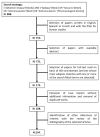Mechanisms Involved in Epileptogenesis in Alzheimer's Disease and Their Therapeutic Implications
- PMID: 35457126
- PMCID: PMC9030029
- DOI: 10.3390/ijms23084307
Mechanisms Involved in Epileptogenesis in Alzheimer's Disease and Their Therapeutic Implications
Abstract
Epilepsy and Alzheimer's disease (AD) incidence increases with age. There are reciprocal relationships between epilepsy and AD. Epilepsy is a risk factor for AD and, in turn, AD is an independent risk factor for developing epilepsy in old age, and abnormal AD biomarkers in PET and/or CSF are frequently found in late-onset epilepsies of unknown etiology. Accordingly, epilepsy and AD share pathophysiological processes, including neuronal hyperexcitability and an early excitatory-inhibitory dysregulation, leading to dysfunction in the inhibitory GABAergic and excitatory glutamatergic systems. Moreover, both β-amyloid and tau protein aggregates, the anatomopathological hallmarks of AD, have proepileptic effects. Finally, these aggregates have been found in the resection material of refractory temporal lobe epilepsies, suggesting that epilepsy leads to amyloid and tau aggregates. Some epileptic syndromes, such as medial temporal lobe epilepsy, share structural and functional neuroimaging findings with AD, leading to overlapping symptomatology, such as episodic memory deficits and toxic synergistic effects. In this respect, the existence of epileptiform activity and electroclinical seizures in AD appears to accelerate the progression of cognitive decline, and the presence of cognitive decline is much more prevalent in epileptic patients than in elderly patients without epilepsy. Notwithstanding their clinical significance, the diagnosis of clinical seizures in AD is a challenge. Most are focal and manifest with an altered level of consciousness without motor symptoms, and are often interpreted as cognitive fluctuations. Finally, despite the frequent association of epilepsy and AD dementia, there is a lack of clinical trials to guide the use of antiseizure medications (ASMs). There is also a potential role for ASMs to be used as disease-modifying drugs in AD.
Keywords: Alzheimer’s disease; antiseizure medications; epilepsy; hyperexcitability; seizures.
Conflict of interest statement
The authors declare no conflict of interest.
Figures



References
-
- Paradowski B., Zagrajek M.M. Epilepsy in Middle-Aged and Elderly People: A Three-Year Observation. Epileptic Disord. 2005;7:91–95. - PubMed
Publication types
MeSH terms
Substances
LinkOut - more resources
Full Text Sources
Medical

